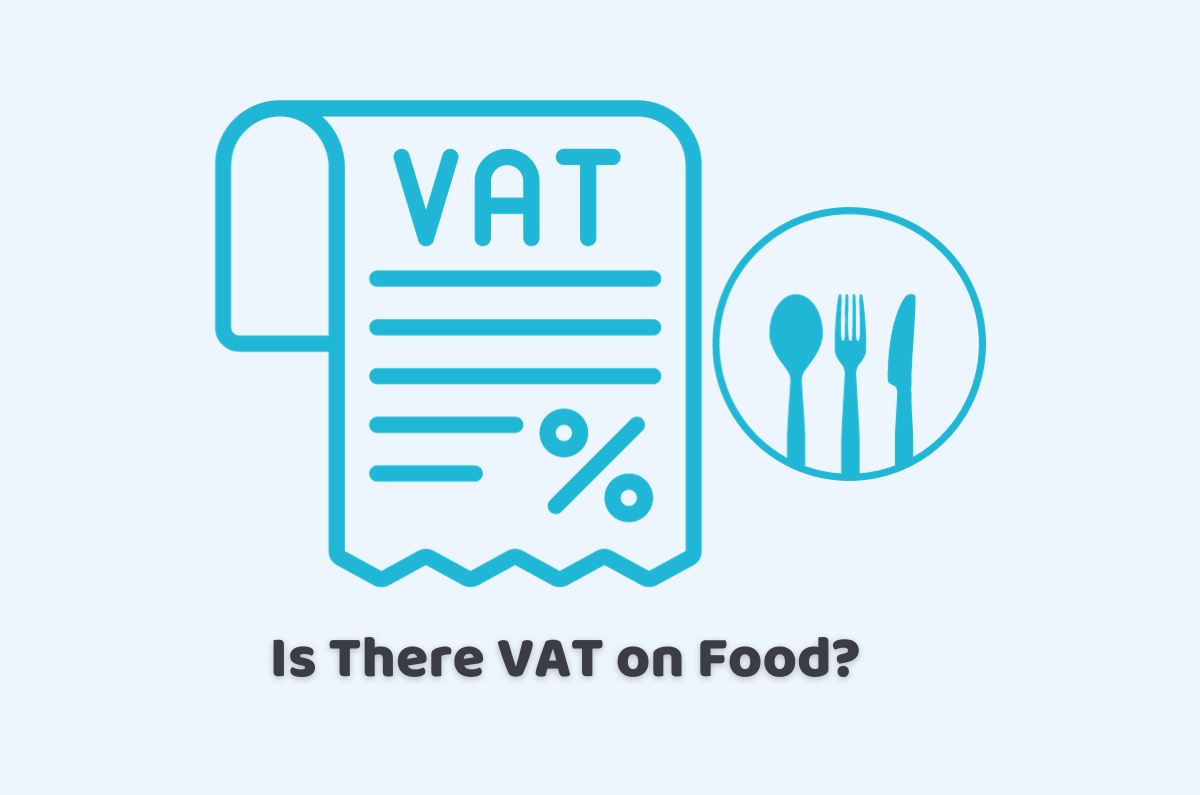
08/01/2024tax , Tax Saving Tips , VAT
Let’s dive into the topic of whether is there VAT on food in the UK. VAT stands for Value Added Tax, which is a consumption tax applied to goods and services in the UK. When it comes to food, the VAT treatment can vary depending on the type of food and how it is sold. In general, most basic food items like bread, milk, fruits, and vegetables are either zero-rated or exempt from VAT.
However, there are exceptions to this rule, such as luxury food items or certain types of food sold as part of a catering service. Additionally, hot takeaway food is subject to VAT. I hope this gives you a good starting point for understanding VAT in food in the UK.
Reach out to our smart and clever-minded guys to get an understanding of the tax set of rules in the UK queries answered quickly. We will help to understand your queries instantly.
What is VAT?
VAT is a tax that is added to the final price of most goods and services, including both products and services provided by businesses. The revenue generated from VAT goes into the government’s general funds and is used to fund public services and infrastructure. VAT can be a complex area, with different rules and regulations depending on the type of goods or services being provided.
Is There VAT on Food in the UK?
In the UK, the application of VAT on food and drinks can be a bit complex. Generally, most food and non-alcoholic drinks are zero-rated for VAT purposes. This means that they are not subject to VAT and are exempt from the tax. However, there are exceptions to this rule.
Certain items like confectionery, ice cream, and certain beverages like sports drinks and fruit juices with added sugar are subject to the standard rate of VAT. It’s important to note that the VAT rules can change, and there may be specific criteria that determine whether VAT applies to certain food and drink items.
Is Food VAT-Exempt or Zero-Rated?
In the UK, most food and non-alcoholic drinks are zero-rated for VAT, which means they are exempt from the tax. This includes basic food items such as bread, milk, fruits, vegetables, meat, fish, and cereals. However, there are exceptions to this rule. For example, certain food items like confectionery, ice cream, and hot takeaway food are subject to the standard rate of VAT, which is currently 20%.
Additionally, if food is being sold as part of a catering service or in a restaurant, it is also subject to the standard rate of VAT. It’s important to note that the specific criteria for determining VAT exemption can be complex, and there may be additional rules and exceptions for specific food items. For the most accurate and up-to-date information, it’s always best to consult official government sources or seek advice from a tax professional.
Is There VAT on Home Cooking and Baking Items?
When it comes to VAT for home cooking and baking items in the UK, most basic ingredients used for cooking and baking are zero-rated for VAT. This means that items like flour, sugar, eggs, butter, and spices are exempt from VAT. However, there are exceptions to this rule. For example, if you purchase pre-packaged or ready-to-eat food items, they may be subject to VAT at the standard rate.
Additionally, certain luxury food items or speciality ingredients may also be subject to VAT at the standard rate. It’s always a good idea to check the specific VAT rules for the items you’re purchasing, as there may be variations depending on the product. If you’re unsure, consulting official government sources or seeking advice from a tax professional can provide you with the most accurate and up-to-date information on VAT for home cooking and baking items in the UK.
Is There VAT on Food Supplied in the Course of Catering?
When it comes to VAT on food supplied in the course of catering in the UK, there are a few things to consider. Generally, food supplied as part of a catering service is subject to the standard rate of VAT, which is currently 20%. This includes meals served in restaurants, cafes, or any other catering establishments. For example, if the food is supplied as part of a package that includes other services, such as venue hire or entertainment, then the VAT treatment may vary. Additionally, it’s important to understand the specific VAT rules that apply to your catering business and consult official government sources or seek advice from a tax professional to ensure compliance.
The Bottom Line
To conclude our discussion on whether is there VAT on food in the UK, it’s important to remember that most basic food items are either zero-rated or exempt from VAT. This means that everyday ingredients used for cooking and baking, as well as essential food items like bread, milk, fruits, vegetables, meat, and fish, are not subject to VAT. However, there are exceptions to this rule, such as luxury food items, pre-packaged or ready-to-eat foods, and hot takeaway food, which are subject to the standard rate of VAT. When it comes to catering services, food supplied as part of a catering package is generally subject to the standard rate of VAT.
Our team of professional members loves to hear out your business problems and find out the possible and suitable solutions quickly to the reporting in the UK. Contact us now.
Disclaimer: The information about whether Is there VAT on food provided in this blog includes text and graphics of general nature. It does not intend to disregard any of the professional advice.

